Redefining Desserts: The Modern Stone Age Kitchen’s Approach to Healthier Sweets
Last Thursday evening 19 of our fantastic 25-member team attended the APG Chesapeake’s Best of the Best Gala at the Kent Island Resort. We had made it to the final three in 16 categories (the Modern Stone Age Kitchen up for 15 awards and our non-profit, The Eastern Shore Food Lab was up for one), and were there to find out who won! When the winners were announced the team was super excited to take home top honors for:
- Best Breakfast,
- Best Business Lunch and
- Best Dessert
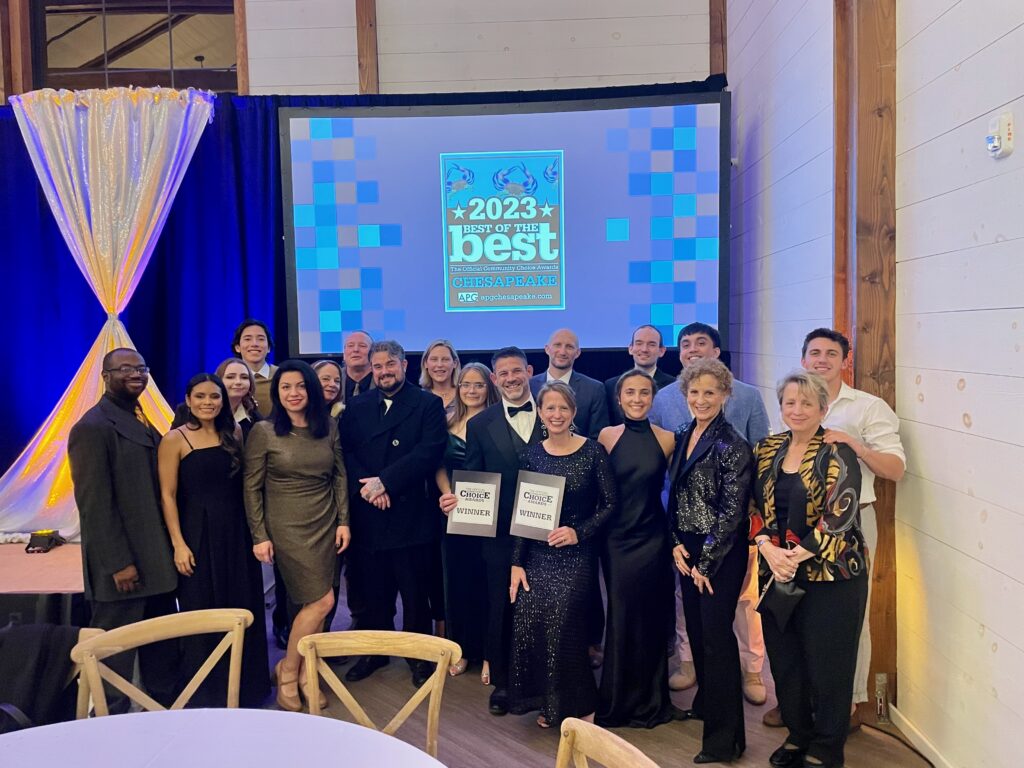
But, to be perfectly honest, I wasn’t sure how I felt about winning for Best Dessert. I mean seriously, dessert at the Modern Stone Age Kitchen?
I am not an advocate of anything sweet and definitely do not think of the Modern Stone Age Kitchen as a place for dessert. I wondered if desserts were even in line with our message and mission and how receiving this award somehow might tarnish our message or, even our brand? Coming to terms with this new honor required some thought and reflection. And, this is what I came up with…
Yes, we offer “sweet” items including a variety of pastries, cookies, and the occasional chocolate mousse or sourdough cake. However, we have extremely strict rules when it comes to everything we make, especially in the “sweet” category.

What makes us different:
- We don’t use any industrial nut or seed oils.
- All wheat is put through a rigorous wild, long fermented sourdough process.
- All seeds, nuts and legumes are soaked and/or sprouted.
- Our dairy is all sourced locally and often fermented.
- Finally, and perhaps most importantly, we don’t use any refined sweeteners.
Sugar explosion
And, that is what I want to concentrate on here: sugar and why our strong stance against refined sugar is so incredibly important. And, this is also the perfect time to address this topic since we are in the throes of the holiday season when sugar consumption is at an all time high.
So, what’s the problem with a little sugar? Well, it’s not a little sugar any more.
Sugar, or more appropriate, refined sugar, is one of the most dangerous parts of our modern food system. Widespread consumption of refined sugar is responsible for a massive amount of pain, physical and mental suffering, disease, and death in our modern world. And, yet, we still celebrate it – especially during this time of the year.
What holiday doesn’t have sugar?
In fact, the modern industrial food system has literally shaped how we perceive and celebrate holidays to support its multi-billion dollar industry through our overconsumption of the refined sugar laden food it produces. It has done such a thorough job of this that there seems to be a sort of unspoken rule that we are just supposed to accept sweets as a part of life during the holidays. Any consideration of separating sugar from holiday celebrations is taboo.
We have been brainwashed to embrace overconsumption of sugar in:
- October (Halloween: all forms of candy),
- November (Thanksgiving: cranberry sauce, casseroles topped with marshmallows, sweetened rolls, all forms of desserts),
- Weeks of the Christmas holiday season filled with free candy canes everywhere you turn, hot cocoa with marshmallows, holiday themed coffee drinks loaded with sugar, eggnog, and everyone gifting each other all sorts of Christmas cookies.
- This is followed by a blowout on New Year’s Eve where we pretend it is our last meal and eat everything in sight before we “start the New Year off right.”
- We have a slight reprieve until February (Valentine’s Day: chocolate) followed by March/April (Easter: peeps, jelly beans and Cadbury Eggs).
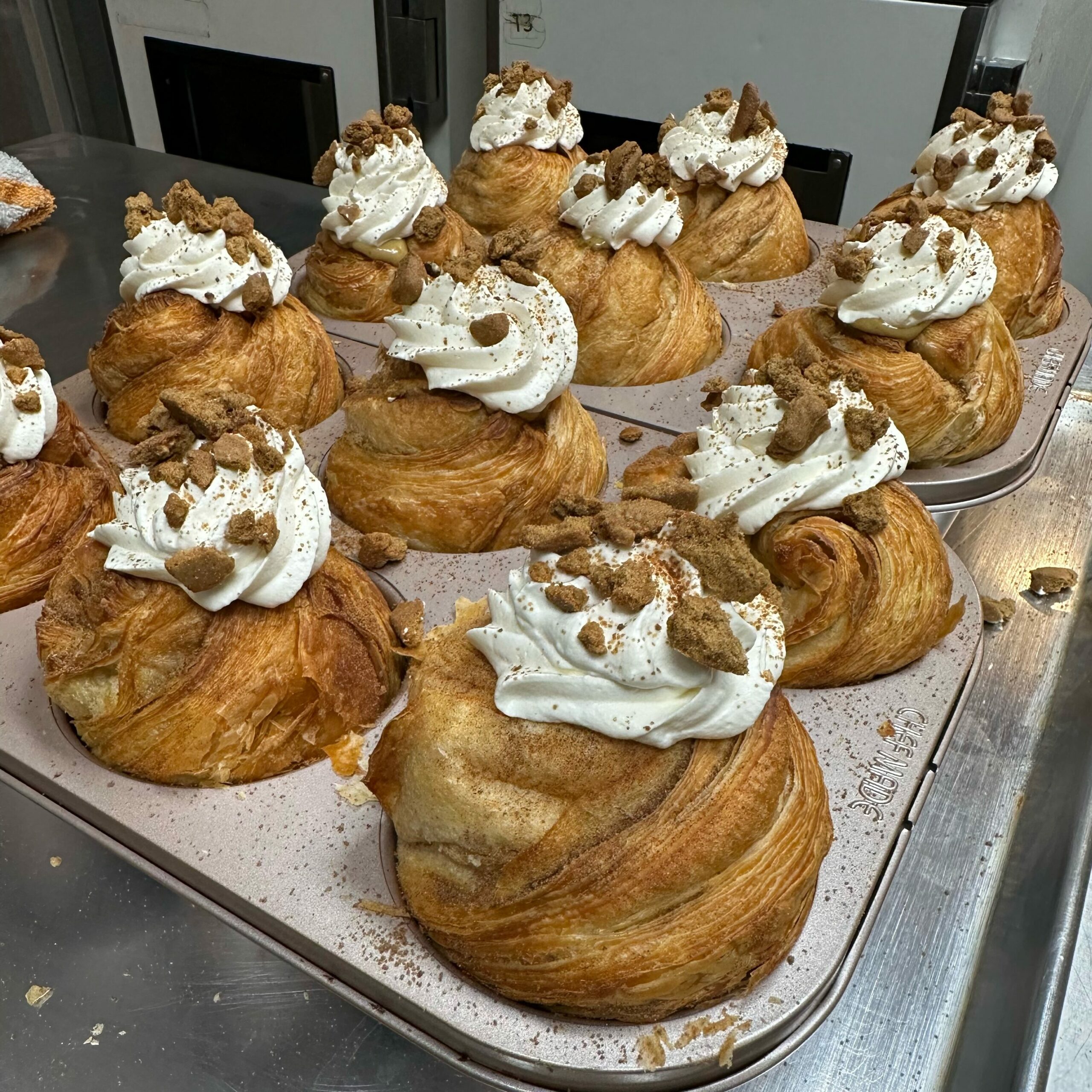
We have no biological requirement for sugar
In a perfect world we cut sugar out altogether. After all, we have no biological requirement for sugar or refined carbohydrates in our diet. But, we don’t operate in a perfect world and we certainly don’t live perfect lives, do we? And, to top it all off there are emotional, cultural, and sometimes even religious needs when it comes to sugar. Yes, I have made the argument that to be fully nourished it includes meeting these needs!!
The following is an excerpt from the final chapter of my book, Eat Like a Human appropriately titled “SUGAR” – I included it here to help you navigate the confusing world of sweeteners.
TYPES OF SUGAR from Eat Like a Human
All types of sugar are processed at some level, and it is confusing and difficult to tell the difference between them, especially when you are trying to make a healthy decision. The difference, albeit subtle, is whether the sugar was highly processed and how much natural molasses — where the trace minerals such as iron, calcium, magnesium, vitamin B6, and selenium exist—remains. From a sustainability and ethical perspective, unrefined and raw sugars come from sugar mills that are usually set up at or near sugarcane plantations, while refined sugar is produced at much larger sugar refineries.
Unrefined sugar contains all of the natural molasses and is minimally processed. It can be found at stores or online under names such as muscovado and piloncillo, or the brand Sucanat. If you are going to use sugar, this is the best choice.
Raw sugar is made from juice extracted from the sugarcane, which is then filtered, boiled (no, it is not actually raw), and centrifuged to remove some of the molasses. It retains some natural molasses, but less than unrefined sugar. It can be found under names such as demerara, turbinado, and products like Sugar in the Raw.
Refined sugar comes from sugarcane or sugar beets. It is highly processed in an industrial system that strips the nutrition and uses chemicals such as sulfur dioxide, phosphoric acid, and calcium hydroxide, leaving behind a substance that our bodies are not equipped to handle. Refined sugar includes brown sugar, which is made by artificially replacing some of the molasses that was removed from the refined sugar during processing. While brown sugar is a slightly better choice than plain white sugar, it is similar to drinking milk that has been taken apart and put back together in a food-processing facility. Stay away from refined sugars whenever possible.
Take the links out of your sugar chain
There are also global economic benefits to purchasing unrefined sweeteners. The more refined the sweetener, the longer the food chain and the more robust the value add processing. A shorter food chain translates into a closer connection to food producers which means more of the money we consumers spend on purchasing them makes its way to the people who are raising, harvesting and producing our food.
The maple syrup you purchase from us comes directly from Valerie and Pat from Back Creek Farms in Monterrey, Virginia. The honey we sell on our shelves comes from Laura at 1731 Farm in Centreville, Maryland. The supply chain on our muscovado sugar is slightly longer, but still leaps and bounds shorter than Domino Sugar on the grocery store shelves. The point here is that in addition to the health and flavor benefits of these sweeteners there are social, economic and environmental benefits to using unrefined sweeteners and sourcing them as locally as possible.
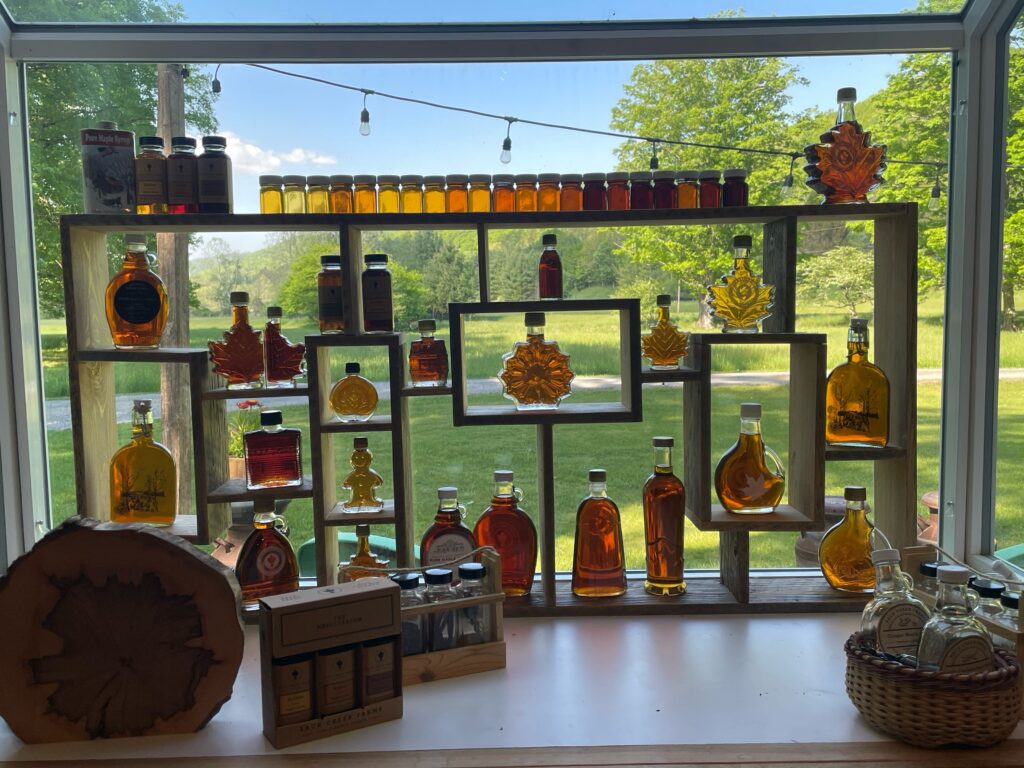
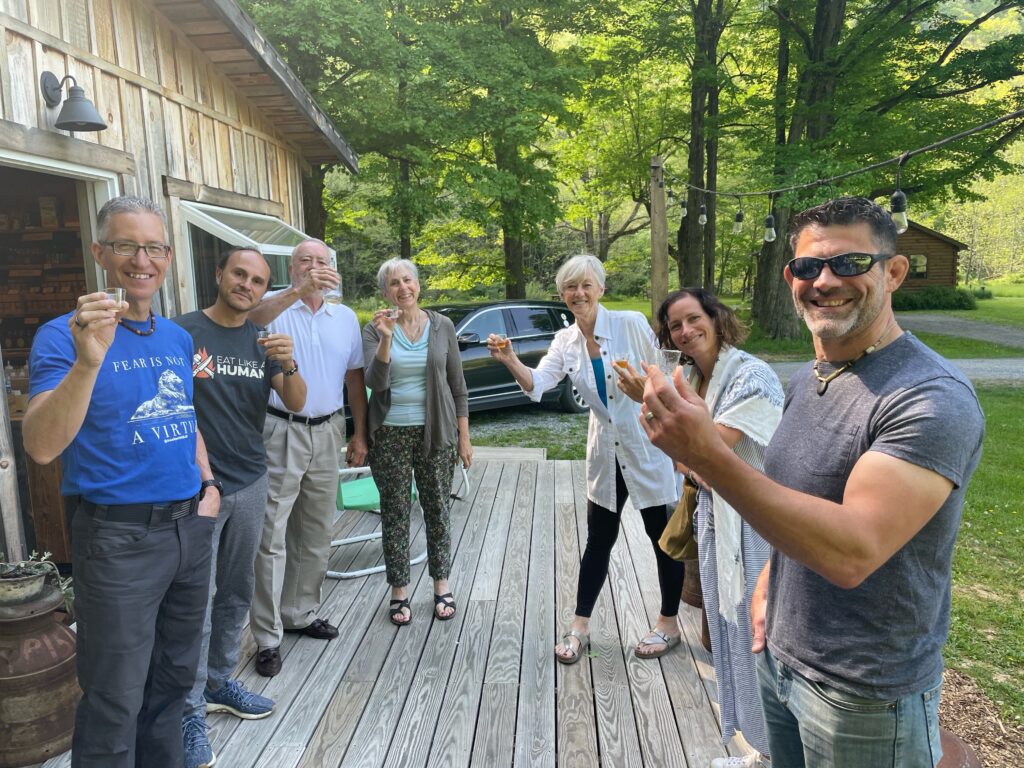
Ok – with that out of the way, it was time to address the elephant in the room. Are desserts in line with our message and mission?
Are they “on brand?”
Yes, 110!
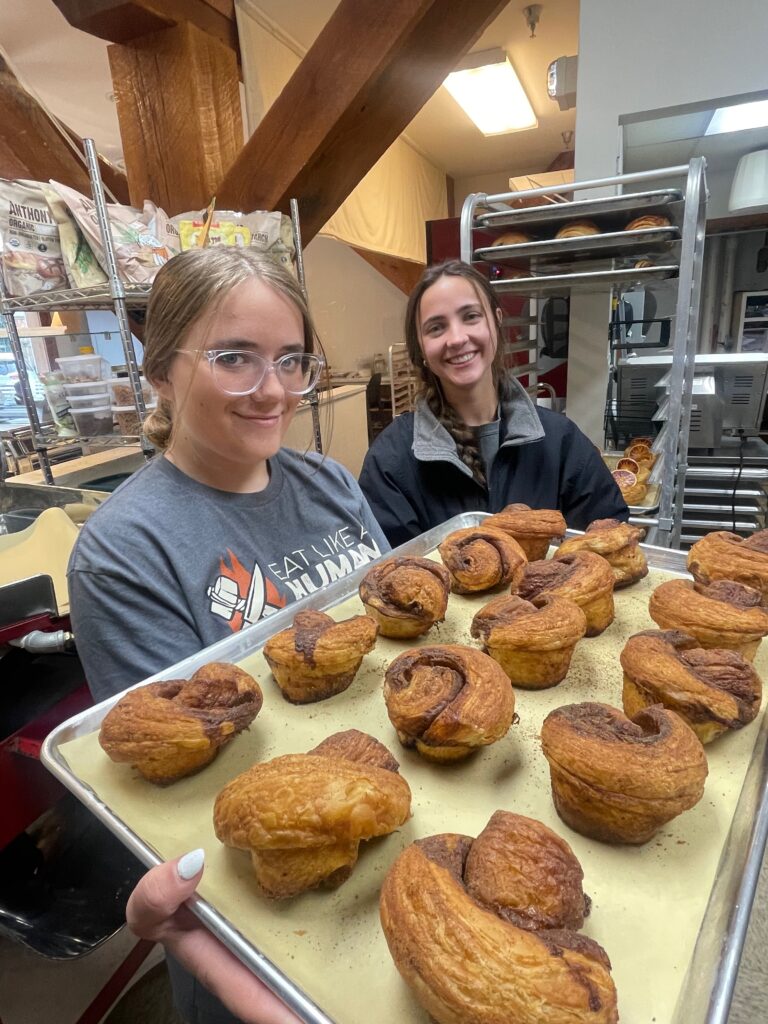
What makes the MSAK different?
At the Modern Stone Age Kitchen our passion is making familiar foods as nourishing as they can possibly be. And, that is exactly what we labor hard to create with all of our food – including everything that would fall within a “dessert” category.
After this reflection I not only overcame my concern with winning this award but fully embraced it. From this new perspective, I realize what this award really means.
It illustrates that it is entirely possible to create safer and more nourishing desserts, AND to make them even more delicious than their modern counterparts made with unfermented flour, industrial nut and seed oils, seeds and nuts that have not been processed to reduce their toxicity, the lowest quality dairy, and, most importantly, tons of refined sugar.
As we work towards reframing holidays to focus more on family, and gathering, and sharing nourishing food than overconsumption of ultra processed foods loaded with refined sweeteners I am thrilled that we offer safer, more nourishing options that also taste and look amazing.




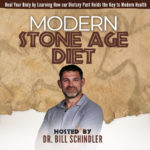
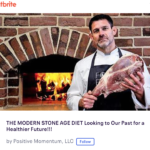
 The pens were never the same…
The pens were never the same…
Really enjoy reading all of everything you eloquently inform us about..simply makes me wanna come back for more :):)
Thanks so very much! Trying to make sure our customers understand what makes us different and how they can also start looking for more nutrient dense foods at other food establishments. It’s important that we start asking the right questions! See you soon!
This is a great sugar article. The past almost 2years I’ve been seriously watching my sugar intake..to include carbs. My numbers have dropped…next check is next week – not fair at this time of year but that makes me even more conscious. Re your sweets offerings…my wish is that you would offer a few mini versions. I cut the Choco cookies in quarters! I’d love to try the others but unless I have 3 people with whom to share, I just cannot purchase…ok I splurge most rarely & get an apple treat.
Sounds good about a mini-version! We’ll see what we can do – especially for the new year when people want a smaller sweet treat since they are “being good”
Great article and very informative! I am very interested in making healthy, nutrient-dense foods that taste good. I would love to attend some classes on how to make healthy desserts, so that on the occasion that we do have “sweets” they are as healthy as they can be.
Thanks so much! We are offering a Sourdough Sweets class next weekend but it’s already sold out so we will be offering another so keep an eye out on the website and social. Thanks!